I hate the phrase “content is king” – it’s not. But content is vital. Putting good content on your site will do more for your ability to bring in organic traffic in a shorter amount of time than link building. This isn’t to say link building isn’t important by any means, but content is critical because it provides the context for your page. If you don’t have content, Google has to rely on page titles, alt text, headline (if you have one), anchor text (internal and external), the relevancy of linking pages, and other lesser signals.
In short, if you aren’t putting substantial content on your pages, you are forcing search engines to rely on the context in which it exists to understand what the page is about.
This is stupid. Just tell Google what your page is about. Why would you make them guess? So the page can look pretty? That’s not an excuse. Neither is that the content will ruin the UX or engagement. Content, SEO, UX, design, and conversion can all work together. I promise.
Once people are up for adding content to their pages, usually the next question is how much. I recommend the following:
- 75-150 words for your homepage
- 100-200 words for category pages
- 250+ words for product pages
- 400+ words for content (Your content length should be based more on conveying your message well rather than hitting a content quota – don’t write more than you need to and don’t skimp because you’re lazy)
And no, you can’t just use a template (you can if you have a massive site, but you should still be writing unique content for many of your pages). Good content is an investment. If you are paying 10 or 50 cents per word, you’re doing it wrong. For a good blog post you should expect to pay anywhere in the range of $100-$400 depending on the length and amount of research involved.
Further, this content needs to be visible and prominent – if you’re hiding your content from users in an expanding div or shoving it at the bottom of the page, what are you telling Google about the importance of your content?
At this point in the game, you can’t expect your content to bring in traffic if you don’t have good, user focused content.
Getting Results
If you already rank well for your primary keywords without an investment in content, you should still do this. Below is a screen shot from analytics for a group of category pages on a client’s site. We added about 200 words of content to each category page (and we made it look good). Overnight we saw a 300% increase in organic traffic.
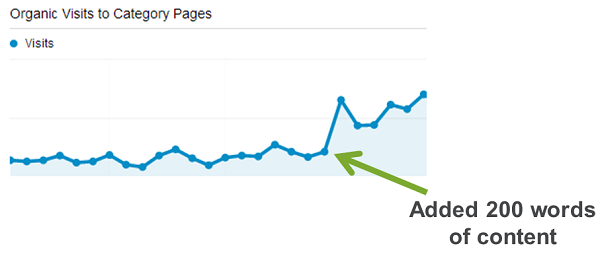
Further, when we looked at month over month organic traffic, we saw a 620% increase. Content is the only way to get that significant of increases so quickly.
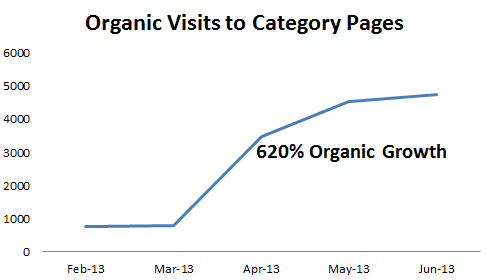
SEO + UX Can Work Together
I said it above, but it is possible for content, SEO, design, UX, and conversion to work together. Here are some examples to help get you started – They aren’t all perfect but should give you some inspiration.

Firestone Complete Auto Care – Batteries
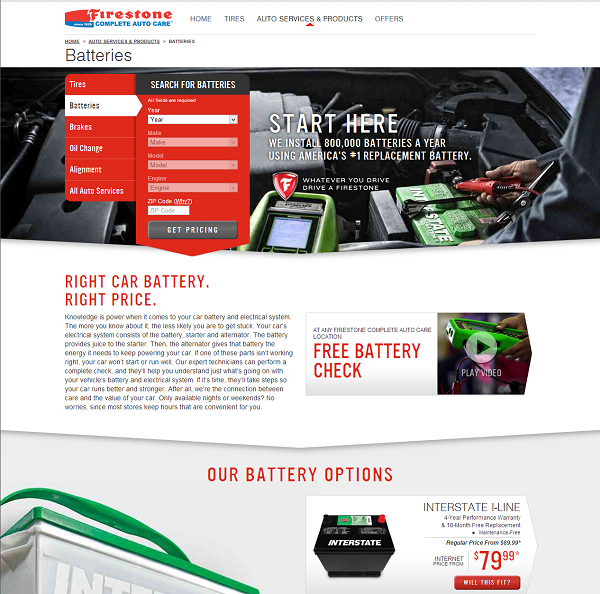
Inline Warehouse – Hockey Sticks
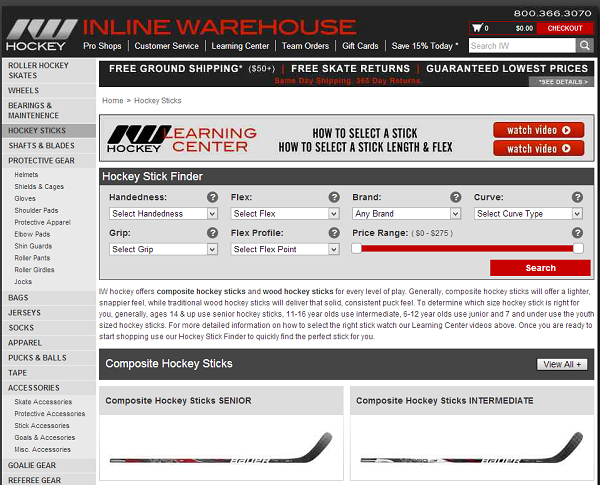
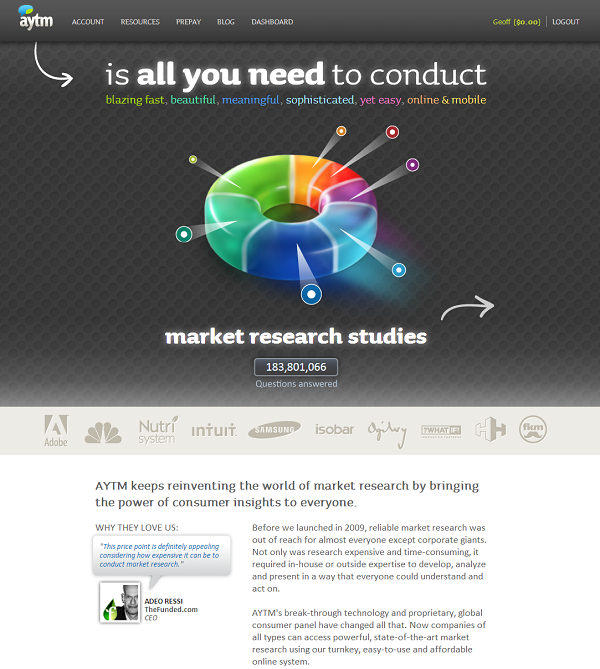
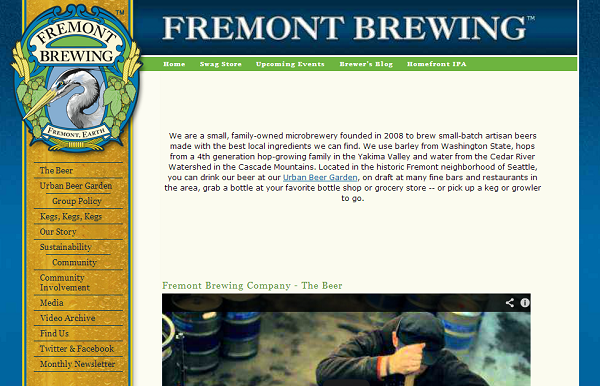

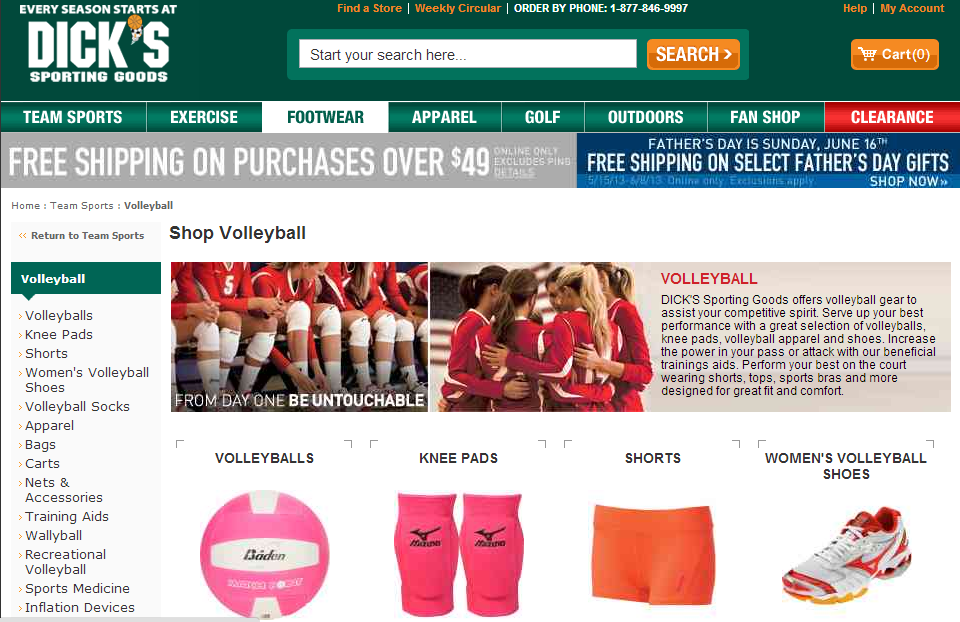
Great case study. Although links still play a big part in Google’s algo, having a good amount of content can’t be ignored either, if you want to rank.
Hey Takeshi, good to hear from you. I agree completely that links are important, but you can add value in a shorter amount of time by adding content to your pages.
I hate the saying “content is King” too, it’s stating something so obvious that it’s silly, plus it’s not quite right, if anything it’s communication that is the King and also calling it “King” is sexist and anti Democratic.
So if anything Content is the Madame President, but of what? What is King content the King of?
Stupid slogans breeds sloppy thinking.
Sorry I just tweeted that thought, couldn’t resist ;)
Just posted this to my team’s Yammer group – thank you for making the point so clearly and convincingly. So I didn’t have to…